Tired of having chipped-off nails?
Then maybe, you have to consider quitting your nail-biting habit. Nail-biting or onychophagia is a bad habit of gnawing off the nails, and sometimes even the soft tissues on the nail bed and cuticles. People of any age or gender are prone to chewing off their nails. A related condition is called onychotillomania, which is the recurrent picking or manipulating of the nails.
Why Do You Bite Your Nails?

You probably already know that this habit is not good for you, and yet you still do it.
Why then do you still bite your nails?
Here are some common reasons for your nail-biting habit.
Stress Relief
Deadlines are coming up, and your schedule is becoming more and more hectic. Or maybe, you are put in a situation you’re uncomfortable with, and the easiest way to release some tension is through nail-biting. According to psychologists, for some people, onychophagia is a great stress reliever when they are anxious or stressed.
Learned Behavior
Sometimes though, it’s not stress or anxiety but is instead a learned behavior. If you’re around people who have a habit of biting their nails, then you may have picked it up from them.
Self-Harm
In some people with depression, nail-biting is the way they harm themselves. When they feel down and stressed, they chew their nails to try to focus the pain on that part of their body so they can stop feeling the emotion.
Inactivity
And then there is boredom. Some people bite their nails just because they have nothing else to do.
Why Is Nail Biting Bad for You?
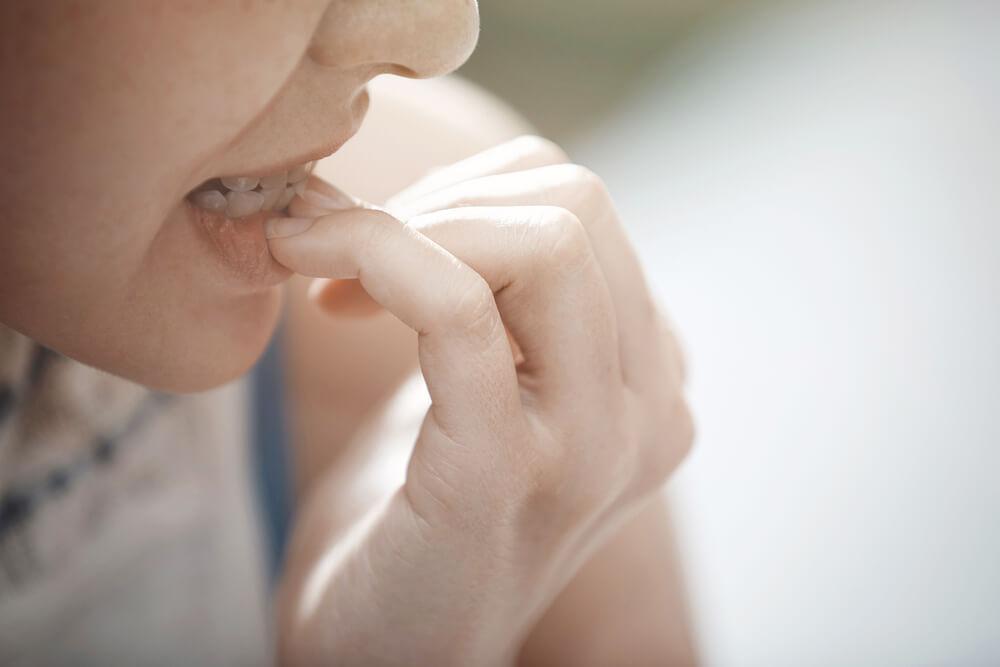
Studies have shown that nail-biting will not really give you long-term nail damage, but you still need to stop it.
If it is not bad, then why quit it?
Because of the following reasons, that may not be all life-threatening but should still concern you.
Free Access for Germs
You don’t see what’s hiding under your nails, but they can’t be all healthy. In fact, a lot of germs that you get from all the places you’ve been and the things you’ve touched are there. Biting your nails is giving these germs direct access to your insides. This habit can easily make you sick.
Risk of Infection
Always biting your nails also increases the risk of paronychia, an infection of the nail. And if you chew on a wart-infected nail, you also run the risk of spreading the virus causing the warts to your other nails.
Harmful for the Teeth
Not only does nail biting harm your nails and your insides, but it hurts your teeth as well! Constantly chewing your nails may shift your teeth out of its place, requiring you to wear correctional braces. Also, you will not only have chipped off nails but also chipped-off teeth and, in the worst case, a rotten tooth. And remember the germs? They may even linger in your mouth and give you halitosis or bad breath.
Ingrown and Hangnails
When you bite more than your nails and reach some of your skin at the top of your nails, well, you can get hangnails. These are open sores that can quickly get infected. Not only that, but your constant nail-chewing can also cause ingrown nails!
Toxic Poisoning
For people with nail polishes, nail-biting is a big no-no as it can lead to toxic poisoning.
How to Quit Your Nail Biting Habit
Most of the reasons for not biting your nails will not cause long-term harm but are still alarming for your general welfare. If you finally want to start unlearning your bad habit, here are some of our expert-backed suggestions for you.
1) Trim Your Nails Short
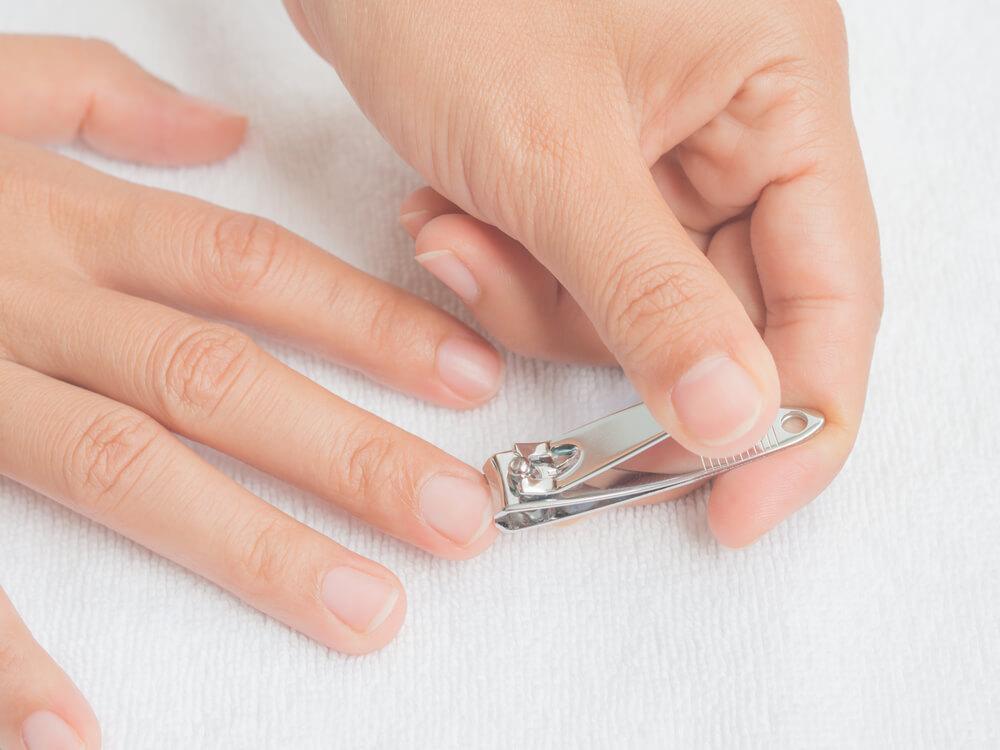
Dermatologists suggest cutting your nails short and filing them. This is one of the ways that most people find helpful when quitting their biting habit.
Why does this simple step work?
Shorter nails are less tempting to bite because there is less nail to bite. Besides, having beautiful, short-trimmed nails are something to show-off and not to bite off, again.
Not only is it an excellent step to take for your nails, but it can help your gut as well. Remember the germs that lie under your fingernails? They thrive more when you have longer nails as there is more space for them to live. So trimming your nails short, decreases the chances of germs living and breeding under your fingernails, also minimizing your chances of getting sick and being infected.
2) Get Manicures
In addition to having your nails trimmed short, spending money on manicures is another good step to quitting your nail-biting tendencies. Experts suggest that you are unlikely to waste something that you spent money on, in this case, a manicure. Schedule a routine manicure to keep your nails trimmed, polished, and ready for any possible hand-holding with the cute guy you’ve been eyeing in the bar.
Although not always successful, using bitter nail polish may also deter you from chewing off your nails. Because why would you want to take away that beautiful nail art design?
You can also opt to rub off bitter or spicy things on your nails to discourage you from putting it in your mouth, like chili. However, we think that having perfectly manicured nails are better.
3) Wear Gloves
If you find it hard not to bite your nails even after spending a day in a nail spa, then you can consider wearing gloves. Wearing mittens will hide your nails and the temptations that they bring to you. Because you can’t bite something that you can’t see, right?
Now, you may think that gloves are not exactly an outfit for all seasons, but they are if you want them to be. You can always rock a glove no matter what the weather is.
Need more reasons to wear a glove?
Here are some other reasons to wear gloves, even when it’s not winter.
- Shopping spree! To rock gloves in any season, you have to wear one that matches your clothes. So, if you love wearing a green dress, you need green gloves. You don’t have one yet? Buy one! You need it! You’re quitting a habit, and you need reinforcement, like that green glove you just saw in the store.
- For protection. Sometimes, we take our hands for granted, even when we shouldn’t. By wearing gloves, you protect not only your nails but your entire hands as well. You decrease the risk of having them sunburned or having a splinter.
- Fashion. Need we say more?
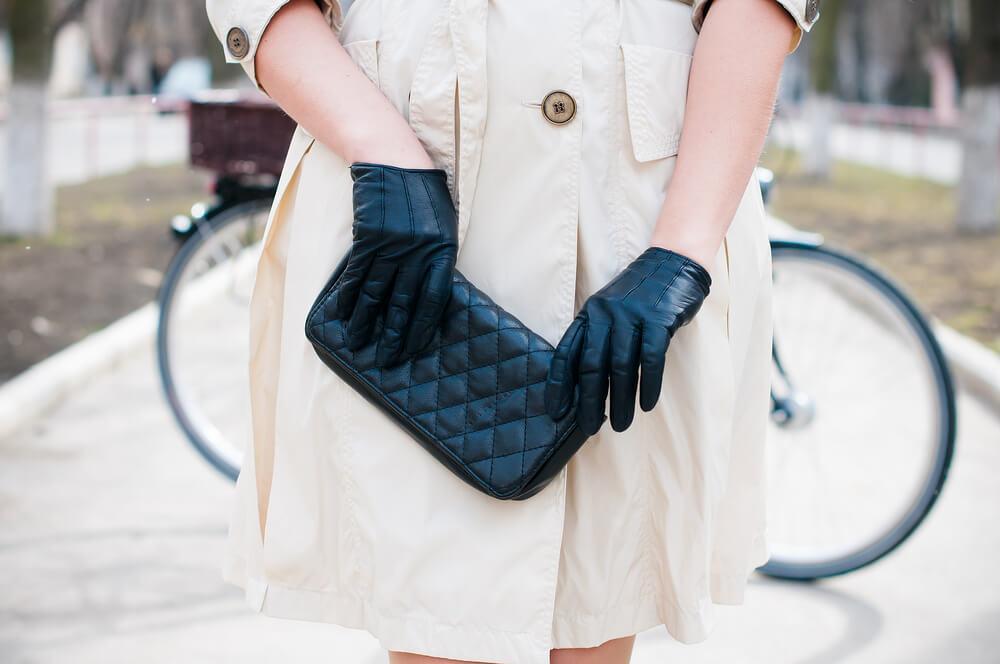
4) Use Visual Reminders
We get it, gloves are not for everybody. If you prefer not to wear gloves, you can always wear something that will remind you not to chew off your nails. Be it a ring or a bracelet, you need something that you can easily see whenever you are tempted to bite your nails again.
Or, if your allergic to jewelry, you can always opt for a bright nail polish to remind yourself not to put your nails in your mouth.
5) Have Stress Balls or Silly Putty
Alternatively, you can buy an object to fidget whenever you feel anxious or stressed. For people with Attention Deficit Personality Disorder or ADHD, using fidget spinners or cubes, stress balls, or silly putty, for increased concentration. You also use these to help focus your attention on these objects rather than on your nails. Although there is not enough science behind the use of these things, some people have reported that they are indeed helpful in distracting themselves from their anxiety or stressors.
What is the benefit of using these objects?
The beauty of these objects is their sizes. They are small and can easily fit the pocket of your jeans or skirt, and some have a chain that you can attach to your bags. So when you are on edge, you can easily reach your pocket or your purse and squeeze or spin your stress ball, silly putty, or fidget spinner and cube.
6) Find an Alternative Action
You can also opt just to find something to replace your nail-biting that does not require you to hurt yourself. Unlearning a habit is not entirely simple, but learning something to replace it can be more accessible.
Is there really an alternative habit that you can do?
Yes! In fact, there are a lot of ways you can cope with your anxiety that will not make your nails look ugly. Here are some of them:
- Chewing gum
- Putting your hand in your pocket
- Eating a healthy snack like a carrot
- Twiddling your fingers
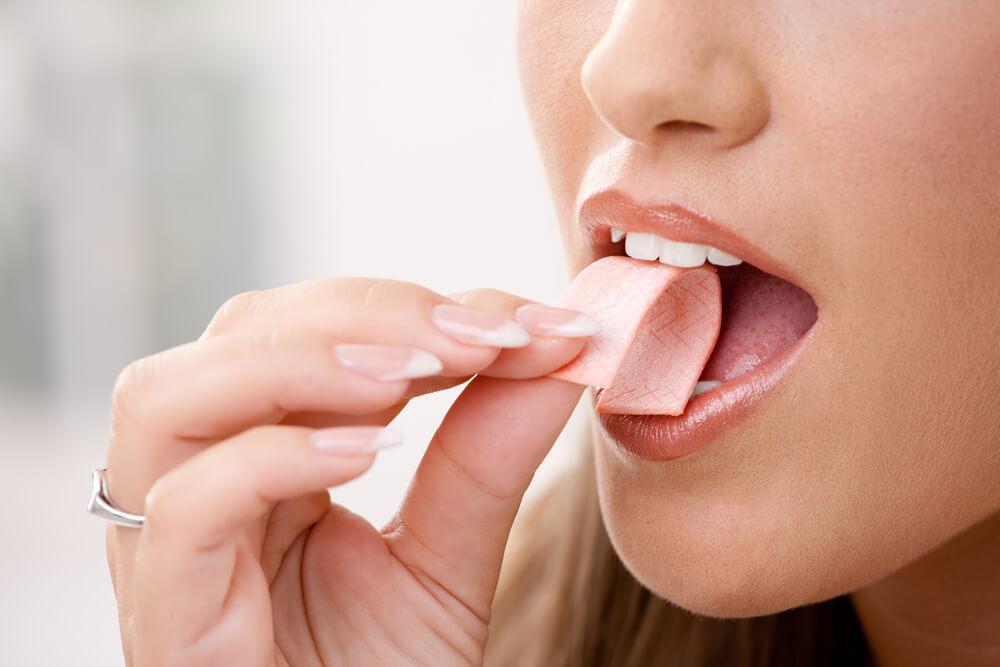
7) Discover a New Hobby
If the main reason you bite your nails is boredom, then maybe it’s time for you to start a new hobby or develop a new habit to pass your time. You have to start something that requires you to use your hands so that you will not be tempted to chew off your nails.
Wondering what habits you can try?
Here are some of our top picks for you!
- Doodling. You can never tell if you’re going to be the next Picasso. So why not find out now? And if you think that you’re not a good artist, well, we can’t all be one, but there’s no harm doing it, right?
- Meditation. If you are stressed all the time, maybe finding your center can help you be more mindful of yourself and your surroundings. It can also let you focus on more important matters that are not nail-biting.
- Exercise. If you’re already into changing this nail-biting habit, then why not aim high and be fit too? Most routines require you to use hands and focus on using them. After all, it is hard to lift weights and bite your nails while doing it.
- Knitting. It’s never too late to learn how to knit. You need to use both your hands at all times to knit a perfect scarf, so you will not be able to bite your nails at all!
- Cooking. Not only is cooking your own meals healthier for you, but it is also a good distraction for nail-biting. Because you are unlikely to wish to bite into a nail in your delicious dish, right?
8) Identify the Triggers and the Emotions
Like what we’ve earlier, there is a reason for your habit. The most common reasons are stress or anxiety and self-harming behavior. With any problem, what you first need to do is ask yourself this question:
Why am I doing this?
Identifying the triggers and the emotions associated with your nail-biting habit can help you determine what pushes you to do it and avoid those things. If, for example, being late makes you anxious and makes you want to bite your nails, then leave early. It will not always be easy to understand yourself fully, but baby steps are better than not trying at all.
Also, knowing these triggers can help you prepare for the proper course of action to take. Like maybe, playing with silly putty or squeezing a stress ball. Or if you’ve decided to learn a new hobby, feeling your triggers will let you know that it is time to bring out your balls of yarn and knitting needles.
9) Seek Professional Help
If these steps don’t work, then you can always seek professional help. Contrary to popular belief, seeking assistance from a mental health expert does not make you crazy. Instead, it makes you a healthy person who is ready to start changing yourself for the better.
How can mental health professionals help you with your nail-biting?
They can prescribe medications that can help alleviate your anxiety or let you undergo cognitive behavioral therapy or CBT. This treatment focuses on the underlying reasons for your repetitive behavior and emotions. It is a relatively short and affordable option that helps you deal with the negative feelings associated with your nail-biting, helping you manage and control the triggers.

10) Reward Yourself
Finally, reward yourself! Changing a habit, especially one that you have been doing for quite some time, is a difficult task. If, for example, you have been able to avoid biting your nails for three days, then you deserve a treat. You have to avoid making yourself feel that changing this habit is another reason to be anxious. Be happy, and enjoy the beautiful nails and fingers that you worked hard for!


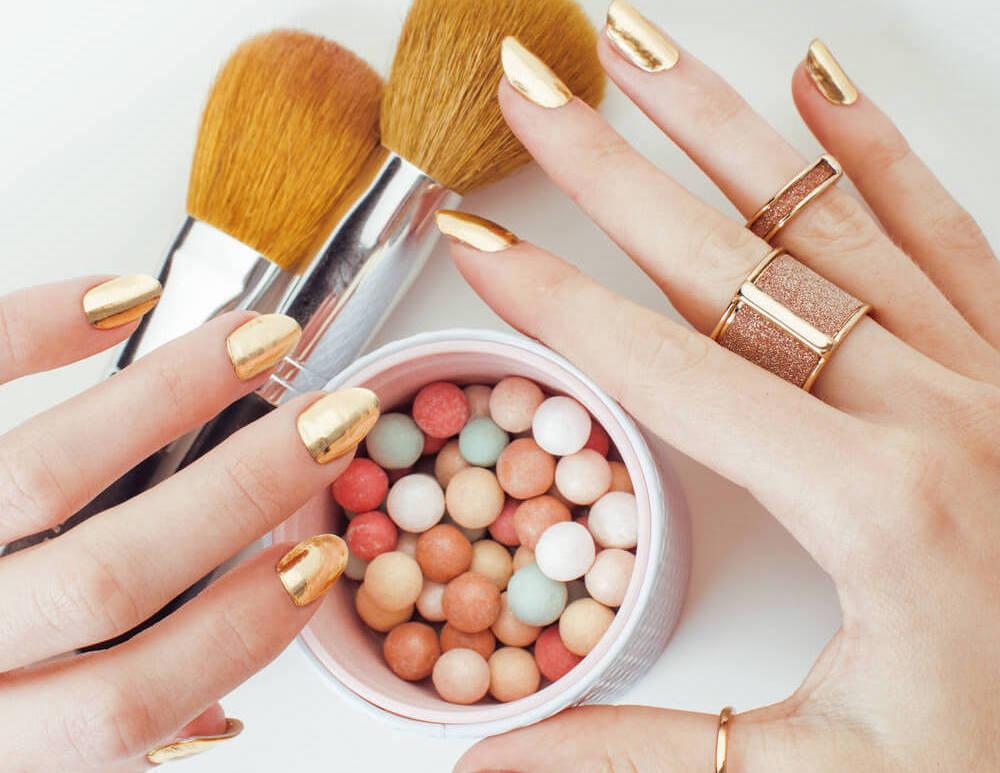

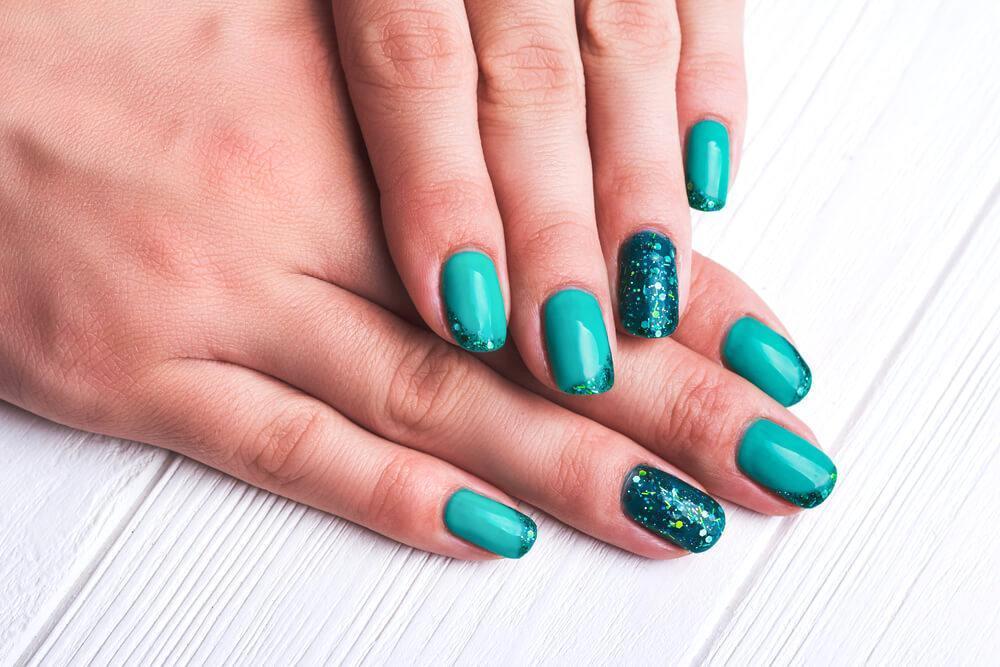
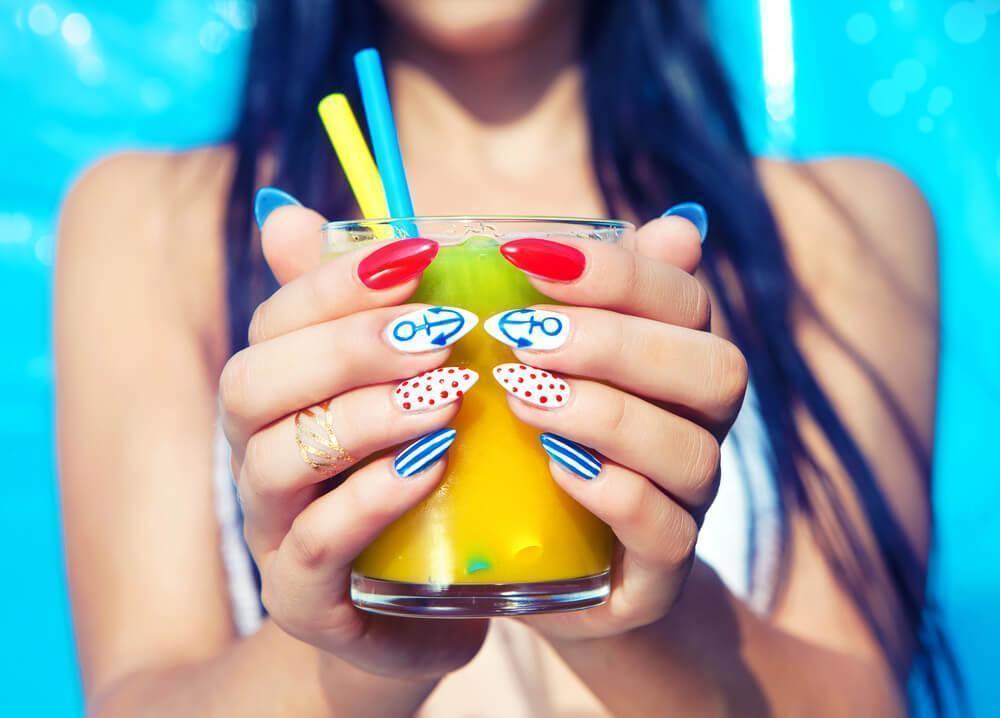
Leave A Comment